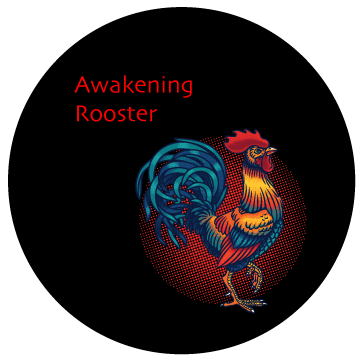Strategy Haiku No4
Time passes our goals
No matter how fast we run…
Don’t run out of breath

Archive for the ‘ Research and Culture ’ Category
Time passes our goals
No matter how fast we run…
Don’t run out of breath


The expression “to renew or die” is in the present time anachronic. Renovation is about bringing yourself up-to-date. It is a road that although it entails a transformation of its own, it is not a revolutionary modification, but rather of an evolutive nature. Today, a social requirement establishes the challenge of innovation as a creative process and propose a novelty that makes a difference. The jump between renovating and re-inventing oneself is qualitatively different.

In the screen movie Lucy by Luc Besson (EuropaCorp, 2014) the main character interpreted by Scarlett Johansson establishes that it is through time we can realize something exists. Time is the most important variable of the human experience, it is the fundamental reference with which we give meaning to things. The experience of the consumer, of an employee, of a business man, the housewife, the professional athlete, a young millennial or the general business executive in a big city interested in acquiring the last version of the new smartphone are not so different to what happens to business and brands of any type… they all measure their experiences in relation to time… Time is the only element that allows us to see if something has changed, if it became better or worst. If we understand this, the question is: why are we not considering time as a fundamental variable in market research?
Nan-in, a Japanese master during the Meiji era (1868-1912), received a university professor who came to inquire about Zen.
Nan-in served tea. He poured his visitor’s cup full, and then kept on pouring.
The professor watched the overflow until he could no longer restrain himself. “It is overfull. No more will go in!”
“Like this cup,” Nan-in said, “you are full of your own opinions and speculations. How can I show you Zen unless you first empty your cup?”

This Zen teaching seems quiet logic, we can not listen to the other if we are talking. A different way to look at this is that when we are talking, we can only listen to ourselves, the other one exists only as a receptor of our concerns. This Zen story applies well to the qualitative market research field when moderating a group or doing an interview, even when we interact with the consumers throughout other media like online platforms. It will be very hard for us to know what the consumer thinks and feels when we fill him/her with the questions and needs we and or our clients have. We must learn how to listen strategically.
The struggle of compromising with the research or with the client

We tilt the world to have the perspective we want [The image: Tilt, a series by Brooklyn photographer Romain Laurent https://www.lostateminor.com/2013/03/11/nyc-is-tilting-off-balance/]
Market research has its origins in statistic and social research models developed in the academic field that aimed to learn the process of social dynamics occur. From sociology to statistics, moving along psychology, archetypes, linguistics and anthropology, the business world has used everything at hand to learn the consumers process and hence, benefiting from methodologies that also offer scientific support and valid information. Different to the academic environment (more focused on learning for learning sake), market research has the objective of learning about the consumer and gather the information that may allow for better decision making process. Thus, the comercial environment ads a series of demands like a fast response, lower research costs and action oriented results that have a direct effect on the research process. Some of these effects can be grouped in what nay be called «methodological bias», something that is commonly not considered in the market research field.

The so called Millennials are a young generation that has received an eager interest from companies, marketing experts and publicity agencies, who believe they are the new strategy trend. Business wise, many people believe they represent the consumer world future, so learning about who they are should be a good way in trying to assure a brand may cope with them along their lives. But millennials have become a moving target, a profile that seems to mutate almost every day by information exposed in the media and worldwide lectures. So the question is, are millennials a reference generation for marketing studies and other consumer insights strategy industry, or are they something society is making up along the way?
Our modern lives are strongly related to technology and the transformation of information, that is, the way we handle information and the value we have come to give information as a strategic asset of all sorts. But the fast pace moving technological-information society we live in does not move smoothly, it crashes here and there with social values, believes, habits and life styles that are not fit to the new technological-society concept of “modernity”. We may identify this situations as cultural contradictions that either create a social void or a real conflict. A cultural contradiction may place us directly in the modern developed society or it may throw us back to the realms of underdevolpement. One good example of this is racism, a strong present cultural contradiction of or society.
First of all, I want to offer an apology to all the regular, eventual and accidental followers of this space for having been absent for a few months. I am back with interesting themes, always regarding todays society and contemporary culture we live in, as well as some market research, so I hope you follow us and spread the news…
…
Recently I assisted to an exposition dedicated to the Mayas in Palacio Nacional (Nacional Palace or seat of the federal executive in Mexico). This exposition turned out to be rather attractive for many reasons. The Mayan culture is with no doubt something that never ceases to amaze us because of it’s development, knowledge, art, language and architecture, among other things. Being born in Mexico, the Mayan culture is not new to me, I had the opportunity to travel to some of the main archeological Mayan sites, but this time, I believe, I saw things in a different way. Some of the objects in the exhibition made me consider that my idea regarding the Mayas was something fixed, not necessary wrong, but rather something that was leaving out many things, as if I had made an arbitrary and unconscious selection of some representative elements of their culture and denied some others.
Impunity may be identified as a particular conduct of power with an important presence in modern life. The fact that people commit offenses of important magnitude in society without being punished or finally being exonerated is a clear differentiating example of who has and does not have power within society. Being able to commit illicit activities without being accountable for them is a status distinction, and even more, as we will see, there is a hierarchy of unpunished acts that may determine the power status of a person.